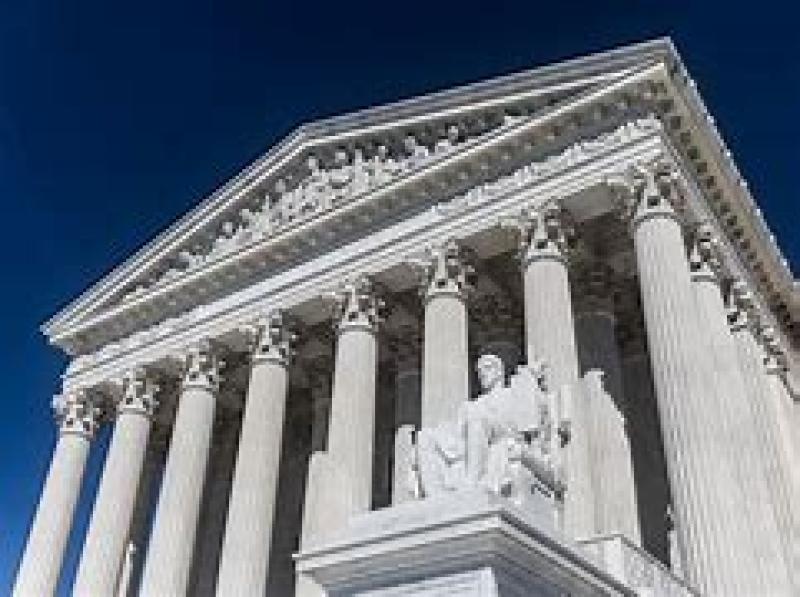New Supreme Court Term Set to Be One for the Ages



A ccording to the Declaration of Independence, all men are created equal. The same cannot be said for all Supreme Court terms. Each one, now stretching from the first Monday in October to around the end of June, involves litigation of interest to legal scholars, to lawyers, and to their clients. These cases often focus on questions of legal procedure, statutory interpretation, and administrative law.
Some terms don’t generate interest for more than these groups and beyond these topics. This upcoming Supreme Court term — set to begin tomorrow, October 4 — will be different.
The Supreme Court’s docket contains cases on which tens of millions of Americans will fixate between now and the term’s conclusion next summer. Indeed, the forthcoming cases include some of the most important and divisive issues of our time: abortion, gun rights, religious liberty, and racial equality. Let’s consider a few.
Bathed in the center-stage spotlight will be Dobbs v. Jackson Women’s Health Organization in which the Court will consider the constitutionality of a Mississippi law banning nearly all abortions after 15 weeks.
With Dobbs , public interest will be supercharged because of the nature of the constitutional challenge. In deciding to hear the case, the justices took up the question of whether all bans on pre-viability elective abortions are unconstitutional. (As of now, viability falls somewhere around 24 weeks’ gestation — so the state of Mississippi’s law seems to be in stark conflict.) The answer to that question, then, bears directly on the status of the Court’s precedent in Roe v. Wade (1973) and its follow-on case, Planned Parenthood v. Casey (1992).
Since Casey, the Supreme Court has not entertained any direct challenges to its core finding that the Constitution protects a right to an abortion — that is, until now. The prospect that the Court could overturn Roe and Casey will make it the most-anticipated case in a generation.
The gun-rights case comes in the form of New York State Rifle & Pistol Association Inc. v. Bruen. In 2008 and 2010, the Supreme Court declared that the Second Amendment protected an individual right to gun ownership and that this right extended to both federal and state laws. Those cases provided a baseline — outright bans on handguns were unconstitutional and persons should be able to keep such weapons in their homes for purposes of self-defense. The Court then said that it would decide particular questions in later litigation.
Since then, however, the Court has not rendered judgment on any gun-rights cases. Now, it will take up a challenge to a New York law limiting carrying guns outside the home. In New York, one must show “proper cause” for doing so, which involves convincing the state of special threats to the carrier’s safety. The Court will begin to determine how far the Second Amendment applies outside the home, with potentially massive ramifications for guns laws across the country.
While Dobbs and Bruen will garner the most attention, other cases deserve public notice, too. Take two — Ramirez v. Collier and Carson v. Makin — that involve distinct questions about religious liberty. The former concerns Texas’s restrictions on audible clergy prayer and clergy touch for death-row inmates in the execution chamber. John Ramirez’s request for both, prior to his execution, was denied because of the state’s restrictive policy. This case will further refine a spate of recent questions regarding meeting the spiritual needs of those about to be executed, with past decisions generally affirming the prisoner’s right to a minister’s presence. Now, the Court will take up what particular interactions a minister and inmate may have.
Carson v. Makin will address a program in Maine that provides public financial assistance to children to attend private schools but limits the choices to those that do not provide religious teaching. As COVID-19 has sparked widespread interest in alternatives to public schools, the ability of religious institutions to compete to instruct these children only grows in importance.
Finally, the Court may take up the lawsuit leveled against Harvard regarding its affirmative-action policies. Asian students have initiated this litigation, claiming that they were unfairly denied admission to the university in order to achieve a better racial balance of the incoming class. What makes this case a potentially big deal is that it offers the Court the chance to reassess its affirmative-action jurisprudence. In 2003, the Court restated that affirmative action — under narrow circumstances — did not violate the 14th Amendment’s equal-protection clause. Since then, various members of the Court have voiced interest in revising that decision — though there has not yet been sufficient consensus to do so. If the Court decides to hear the case, it might signal that the dynamics have changed.
Indeed, these questions bear on some of our most active political divisions. No matter how the justices rule, one thing is for certain: This term will be one for the ages.

ADAM M. CARRINGTON is an associate professor of politics at Hillsdale College.


We've heard it said so many times before - that this term could be a vital one!
I suspect this one will be, not just for the cases to be decided, but for the Court to stand up and show that it won't be intimidated.
look on the GOP bright side. only took moscow mitch 5 years to totally de-legitimize SCOTUS by politicizing it.
Then how do you explain the Court's last term when more cases were decided by unanimous decisions than sharply divided justices breaking along neat ideological lines?
This one should be interesting:
Dobbs v. Jackson Women’s Health Organization
While the media and politicians were going nuts over the recent Texas abortion law and misrepresenting the court’s order in that case, the real and immediate threat to Roe v. Wade (and Planned Parenthood v. Casey) was already sitting on the docket . You see, the Mississippi law (15 months) is now going to look like a compromise.
A good one for Christians. especially Catholics would be:
Carson v. Makin
It could easily expand on the holding of Chief Justice John Roberts in Espinoza that, if states offer education subsidy, they "cannot disqualify some private schools solely because they are religious."